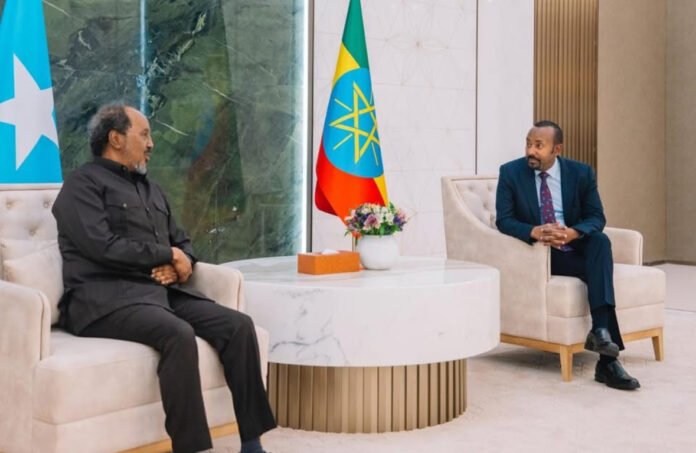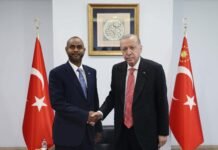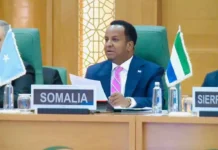MOGADISHU, (HAN) — Somali and Ethiopian leaders recently convened for a high-level, closed-door meeting to address several sensitive issues, most notably the security and political situation in Somalia’s southwestern Gedo region and the administration of Jubbaland. While official statements from both governments were limited, sources familiar with the discussions indicate that the talks focused on mechanisms for coordination, security collaboration, and the future of Jubbaland’s governance structure.
Ethiopian Prime Minister Abiy Ahmed is reported to view the Ethiopian-backed forces operating in Gedo as critical to Ethiopia’s national security. These forces, strategically stationed along the border, serve not only to secure Ethiopia’s southern frontier but also, according to analysts, provide the Ethiopian government with political leverage over Somalia’s federal authorities in Mogadishu when needed.
Observers note that Ethiopia has maintained a longstanding influence in Jubbaland, often providing support to its leader, Ahmed Madobe. This support has historically allowed Ethiopia to ensure that Jubbaland remains aligned with Ethiopian strategic interests while avoiding a direct confrontation with Somalia’s federal government. Analysts argue that this approach has been a recurring feature in Ethiopian-Somali relations, particularly in the post-1991 period following Somalia’s central government collapse.
Given Ethiopia’s security concerns and regional ambitions, it is considered unlikely that Prime Minister Abiy would endorse a scenario in which Gedo falls entirely under the direct control of Mogadishu. Instead, the closed-door meeting appears to reflect ongoing efforts by both sides to strike a delicate balance: allowing Somalia to assert federal authority while accommodating Ethiopia’s security and political interests in the border regions.
Political analysts suggest that the talks could have significant implications for Somalia’s federal system and regional state dynamics. Jubbaland, which borders Ethiopia, has often been at the center of disputes over federal oversight, local autonomy, and resource control. Ethiopia’s involvement adds another layer of complexity, as its influence can shape not only security arrangements but also political alliances within Somalia’s federal framework.
While no formal agreements have been publicly announced, sources say that both sides are likely to continue engaging in high-level dialogue to manage tensions and coordinate approaches to regional administration, security operations, and cross-border cooperation.




